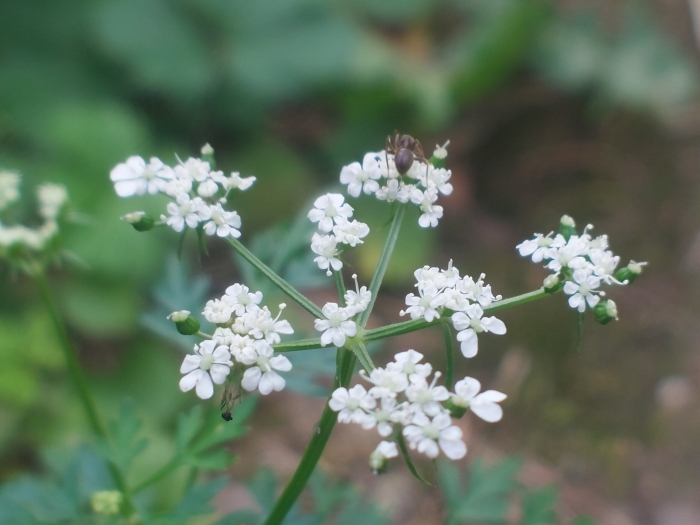Fool’s Parsley
(Aethusa cynapium)
Fool’s Parsley (Aethusa cynapium)
/
/

© nuujaka
CC BY 4.0
Image By:
© nuujaka
Recorded By:
Copyright:
CC BY 4.0
Copyright Notice:
Photo by: © nuujaka | License Type: CC BY 4.0 | License URL: http://creativecommons.org/licenses/by/4.0/ | Uploader: nuujaka | Publisher: iNaturalist |

























Estimated Native Range
Summary
Aethusa cynapium, commonly known as fool’s parsley, is an annual herb native to open fields, waste places, and disturbed grounds in Europe, western Asia, and northwest Africa. It typically grows to a height of up to 31 inches (80 centimeters) with a fusiform root and a smooth, hollow, branched stem. The leaves are finely divided, resembling those of true parsley, and emit an unpleasant smell when crushed. From June to September, fool’s parsley produces small white flowers arranged in compound umbels, which are not particularly showy but are characteristic of the Apiaceae family.
Fool’s parsley is not commonly cultivated due to its toxic properties; however, it can be found in some herb gardens for educational purposes or by those interested in poisonous plants. It prefers full sun to part shade and thrives in well-drained soils. While it is not demanding in terms of water, it does best in moderately moist conditions. Gardeners should exercise caution as all parts of the plant are highly toxic if ingested, and it can be mistaken for edible herbs. It has no notable benefits in cultivation and is generally considered a weed. Due to its invasive potential, it should not be grown outside its native range without careful consideration.CC BY-SA 4.0
Fool’s parsley is not commonly cultivated due to its toxic properties; however, it can be found in some herb gardens for educational purposes or by those interested in poisonous plants. It prefers full sun to part shade and thrives in well-drained soils. While it is not demanding in terms of water, it does best in moderately moist conditions. Gardeners should exercise caution as all parts of the plant are highly toxic if ingested, and it can be mistaken for edible herbs. It has no notable benefits in cultivation and is generally considered a weed. Due to its invasive potential, it should not be grown outside its native range without careful consideration.CC BY-SA 4.0
Plant Description
- Plant Type: Herb
- Height: 2.25-2.5 feet
- Width: 1.5-2 feet
- Growth Rate: Rapid
- Flower Color: White
- Flowering Season: Summer, Fall
- Leaf Retention: Deciduous
Growth Requirements
- Sun: Full Sun
- Water: Medium
- Drainage: Medium
Common Uses
Edible*Disclaimer: Easyscape's listed plant edibility is for informational use. Always verify the safety and proper identification of any plant before consumption., Low Maintenance
Natural Habitat
Open fields, waste places, and disturbed grounds in Europe, western Asia, and northwest Africa
Other Names
Common Names: Dog Poison, Fool’s Cicely
Scientific Names: , Aethusa cynapium, Coriandrum cynapium, Cynapium vulgare,
GBIF Accepted Name: